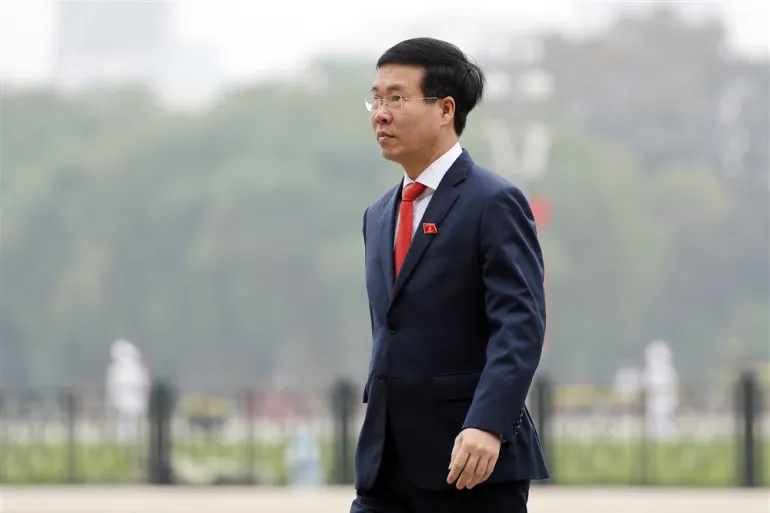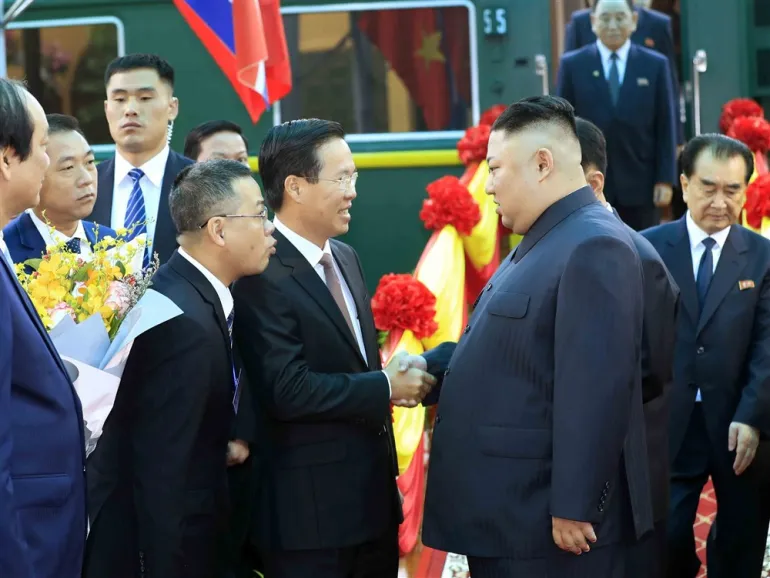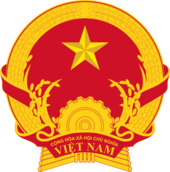Vietnam’s Communist Party has nominated Vo Van Thuong, 52, as the country’s next president, according to sources.

The Vietnamese Communist Party has nominated Vo Van Thuong as the country’s new president, two party sources told the Reuters news agency, following the forced resignation in January of his predecessor as part of a sweeping anti-corruption campaign in the country.
The government in a statement on Wednesday said the party’s Central Committee had agreed on a nomination for president but did not name the candidate.
Thuong, 52, is the youngest member of the party’s 16-member Politburo, the country’s top decision-making body, and is widely regarded as being close to the Communist Party of Vietnam’s General Secretary Nguyen Phu Trong, Vietnam’s most powerful figure.
Thuong currently holds the post of secretary of the party’s Central Committee, which is already one of the highest-ranking positions in the country.
Le Hong Hiep, a senior fellow and coordinator of the Vietnam Studies Programme at the ISEAS-Yusof Ishak Institute in Singapore, said Hanoi had been “abuzz” with rumours in recent days that Vo Van Thuong would be named a candidate for state president.
Born in Vietnam’s southern Vinh Long province, Thuong is also seen as an ally of National Assembly Chairman Vuong Dinh Hue, who is reportedly a favourite to succeed the current secretary-general in the top party job.

“The election of Thuong to the presidency can therefore facilitate this succession plan,” Hiep wrote on Tuesday in Fulcrum.
Trong is the main architect of the ongoing “blazing furnace” crackdown on corruption, under which hundreds of officials have been investigated and many forced to quit their jobs, including Vietnam’s former President Nguyen Xuan Phuc and two deputy prime ministers.
Thuong’s nomination will need approval by the country’s rubber-stamp National Assembly, which is due to hold an extraordinary session on Thursday and a formal sitting in May.
“Thuong is a dyed-in-the-wool party apparatchik and a trusted member of Secretary General Trong’s inner circle,” said Carl Thayer, an expert in Vietnam’s politics at the Australian Defence Force Academy in Canberra.
Hanoi-based diplomats told Reuters news agency they saw the party’s decision to name Thuong as president as an attempt to advance a new generation of leaders and consolidate power in the event the 78-year-old Trong decides to step down before the end of his third term in 2026.
The general secretary is often chosen from among one of the top leaders and Trong, who was reappointed for a third term in 2021, “is ensuring he has an acceptable successor in the mix”, one diplomat said.

